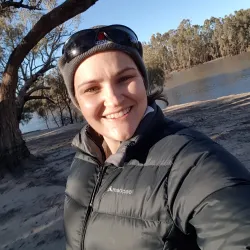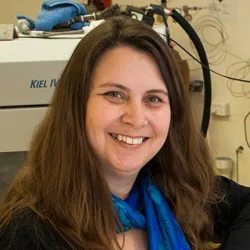
Master of Earth Sciences (Advanced)
Overview
The Master of Earth Sciences (Advanced) is a research-focused degree for students with an endless curiosity about how the world works.
In this program, in addition to your coursework, you will design and complete an independent research project based on your own interests. You can explore subjects in biogeochemistry, ocean and climate change, seismology and mathematical geophysics, and experimental petrology.
Under the expert supervision of academics from Australia’s leading academic institution for Earth sciences, you will graduate with the advanced skills necessary to conduct further research, such as for a PhD.
Please note: if you are interested in a coursework-only degree in Earth sciences, without a research component, this is possible with the Master of Science in Earth Sciences from ANU.
Commonwealth Supported Places (CSP) are available for this program.
Key facts
- #1 in Australia and #12 in the world for Earth & Marine Sciences (QS 2024)
- #1 in Australia for Geology & Geophysics (QS 2024)
- 2 years full time
- Study full time or part time
- Access to state-of-the-art facilities
- #1 in Australia for graduate employability (Times Higher Education)
- Commonwealth Supported Places (CSP) are available for this program
Testimonials

Yucheng Lin
“Studying Earth Sciences at ANU was an exciting experience for me. There are world-class facilities for students to use including some of the world’s best analytical equipment and super computers. I could easily have meaningful and cheerful conversations with top scientists in different research areas. All of these allowed me to rapidly develop as an Earth scientist, and proceed to a PhD at Durham University.”

Faye Williamson
"I am incredibly proud of what I learnt and achieved during my Master of Earth Sciences (Advanced) that I completed part-time at ANU. I have been able to use the results from my research to improve practices at my workplace (NSW Department of Planning and Environment) and at the MDBA. I wouldn't have been able to achieve what I did without the support of my amazing supervisors and conveners."
Careers
As a graduate, you will be highly employable for work in research, policy and management roles in Australia and across the world, including:
- Project management
- Research and analysis
- Education and community awareness,
- Policy.
A Master of Earth Sciences (Advanced) is an excellent qualification for pursuing a career in climate and marine science, geochemistry, and geophysics. The degree also prepares you for opportunities in scientific, biological, geological, geotechnical, meteorological, resource management and similar companies, or in government and public service positions.
Students graduate with the ability to carry out research on Earth sciences in university, industry or government research institutions. Many staff in the school have strong links with industry, government and other relevant agencies to help support student research and career pathways.
Below are some of the career outcomes of our alumni, highlighting the diverse paths they've taken since graduating from the Master of Earth Sciences (Advanced)*.
- Postdoctoral Research Associate at Rutgers University
- Hydrogeologist at NSW Department of Industry
*Based on data from LinkedIn.
The Australian National University has been ranked as the top university for graduate employability in Australia in the Global University Employability Ranking 2023-24. As a student at ANU, you gain access to the ANU CareerHub – an online career development and employability tool that includes a jobs board and careers resources. You also have access to drop-in chats with a career consultant and to attend our career fairs to meet potential employers.
Learning experience
Fees & scholarships
Scholarships
Domestic science students with First Class Honours (or equivalent) can apply for a $10,000 scholarship offered in partnership with Geoscience Australia.
Key people

Dr David Heslop, program convenor

Dave's research focuses on Earth's magnetic field. His areas of expertise are geophysics and data science, including the development of new statistical techniques to quantify past changes in the behaviour of Earth's magnetic field. Dave is currently working on a project to reconstruct field behaviour around Australia over the last ten thousand years.

Professor Penny King

Penny examines the interaction of planetary materials with gases and the role of these processes in understanding the evolution of planetary environments and surfaces. Her areas of expertise are Geology, Geochemistry, Surface Processes and Mineralogy and Crystallography.

Professor Nerilie Abram

Nerilie's research focuses on how the Earth’s climate has behaved over the last millennium, and what that tells us about the climate changes we are seeing now. The past climate records that she develops come from corals, caves and ice cores, and she combine these with climate model data to study climate changes.

Professor Andrew Roberts

Andrew's work using geologic and fossil records has enabled scientists to use the geological record to reconstruct global plate tectonic movements and to understand variations in Earth's magnetic field through its history. He is an international leader in the field of environmental magnetic analyses of climate change, and has developed new methods in rock magnetism.
How to apply
Understand the how to apply steps
Visit the international postgraduate applications page to prepare for your application to ANU.
International postgraduate applicationsUnderstand the how to apply steps
Visit the domestic postgraduate applications page to prepare for your application to ANU.
Domestic postgraduate applications





